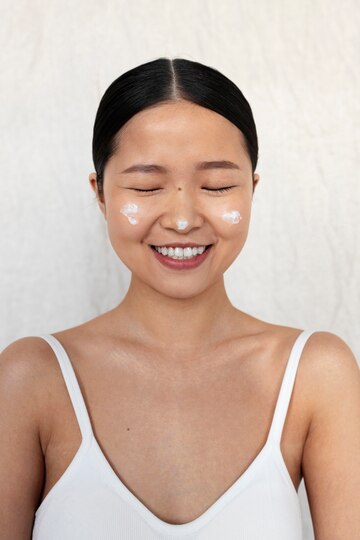Niacinamide and Retinol: Can You Combine Them?


Retinol and niacinamide are both popular skincare ingredients. Each improves the signs of ageing, evens skin tone, increases skin texture and brightness, reduces irritation, and improves acne and blemishes. If one notices a product containing both of these ingredients, it is natural to wonder if they are practical and how safe it is to combine them.
How safe is such a product? It is critical to think, as many ingredients in the healthcare industry do not match well and cause adverse reactions. In this article, we will explain both of these ingredients and whether combining them in the skincare routine is acceptable and safe. Want to learn more? Just keep reading!

It is the water-soluble form of the vitamin B3 or niacin. It is one of the essential B vitamins one needs to live a healthy life. Inside the body, it helps control inflammation and repair damage to the DNA. Besides, it increases energy levels and allows the cells to perform various essential activities. It is also necessary for immune functions, hormone production, skin health, cholesterol management & DNA repair.
Niacinamide has many additional benefits when applied topically and effectively controls sun damage, itchiness (pruritus), hyperpigmentation, autoimmune disorders, atopic dermatitis, rosacea, acne, and signs of ageing. These skincare benefits of niacinamide are attributed to various mechanisms.
So, are you planning to buy niacinamide supplements? Welzo offers numerous supplements, e.g., Nature's Way Niacinamide 500mg Capsules & Douglas Labs Niacinamide 500 mg. Visit our pages to buy them. Our Vitamin B3 (Niacin, Niacinamide) collection has numerous related supplements.
Retinol is one of the over-the-counter forms of retinoids, which are derivatives of vitamin A. Vitamin A is an essential vitamin the body needs for cellular communication, vision, and immunity. It is a well-known ingredient in Skincare products.
It is often used in products known to treat or minimise hyperpigmentation, signs of ageing, and acne. Retinol works in various ways, and according to research published in Advances in Dermatology & Allergology in 2019, it controls sebum production and thus controls acne.
Unlike niacinamide, however, it is associated with some side effects, e.g., inflammation and irritation that cause a burning sensation, peeling, dryness, tightness, and photosensitivity. Most of these effects improve slowly with time. Likewise, the OTC use of retinol is an excellent alternative to many prescription retinoids that cause more skin irritation.
If these benefits have impressed you, you might be interested in retinol supplements. Visit us to buy CeraVe Resurfacing Retinol Serum.

Combining retinol and niacinamide as a single product in the skincare routine offers numerous benefits.
So, suppose a person uses a product that contains niacinamide. In that case, it not only protects the skin barrier but also provides many of the benefits of retinol and causes fewer side effects.
Many other studies have also noted that products containing the combination of retinol and niacinamide improve skin tone.
This question has numerous answers. Not all skincare products containing various ingredients pair well and work for people with all skin types. Some combinations work poorly and have negative or lesser impacts on the skin. So, how does the combination of nicotinamide and retinol work for the skin? Fortunately, the combination containing retinol and niacinamide is effective and safe.
This combination has numerous benefits for healthy skin and the face. Various products at Welzo and Amazon contain a combination of niacinamide and retinol. Amazon UK's best examples are CeraVe Resurfacing Retinol Serum with Niacinamide, AMMURI Retinol Supreme Serum with 5% Nicotinamide and many more.
To this date, no scientific studies or research have explored this combination's side effects and downsides. This combination is, therefore, well tolerated by people of various skin types. However, some people develop side effects, particularly those sensitive to retinol or niacinamide.
The addition of one or both of the ingredients is nevertheless harmful for very few people. The exact risk of side effects depends upon many factors, e.g., the concentration of each ingredient, the specific health and conditions of the skin, and the presence of other ingredients in the formulation.
Retinol and niacinamide are often combined to make one product, which is usually more convenient and accessible for many people. However, both are nevertheless available separately. If a person uses both products independently and wants to shift to the combination, niacinamide first, followed by retinol, is advised.
Follow the manufacturer's recommendations on using both products in combination or alone. Stick to the guidelines and never apply more than necessary.
Applying niacinamide well before products containing retinol is advised to reduce irritation and help shield the skin. However, many professionals suggest the opposite, and it depends on many personal factors.
Many skincare ingredients do not work well with niacinamide. For example, beta hydroxy acids (BHAs) and alpha hydroxy acids (AHAs) are chemical exfoliants that do not work well with niacinamide, and pH must be considered before this combination.
Retinol has the same cautions of use as niacinamide. It should not be mixed with alpha and beta hydroxy acids due to the risk of irritation and over-exfoliation. It should also be combined with vitamin C cautiously.
Combining this combination at various times is a practical part of a skincare regimen. As retinol causes more sensitivity to sunlight, it is better to apply it at night. Using retinol at night and niacinamide in the morning is a sensible routine.
Numerous ingredients combine well with niacinamide and can be used in this combination. These include sunscreens, ceramides, peptides, azelaic acid, salicylic acid, hyaluronic acid, vitamin C, and niacinamide. Numerous other ingredients are available in various skincare products.
If a person prefers to use both products simultaneously, niacinamide in the morning and retinol in the evening are advised. Nevertheless, combination products containing both products are effective for regular use.

Niacinamide is a skincare ingredient that reduces blemishes, discoloration, and the signs of ageing. Retinol has almost the same skin benefits but is often stronger than niacinamide. It causes dry skin, irritation, and redness in some people.
The combination of both of these ingredients is safe to use. It is often needed, as niacinamide reduces skin irritation and hydrates the dry skin associated with retinol. These ingredients are available not only as a combination but also as separate products. To achieve the best results, it is necessary to follow the manufacturer's guidelines and not use more than the guidelines.
Both of these supplements are available at Welzo in combination and alone. Visit our Facial Skincare collections to buy them. However, if you need a consultation, Welzo doesn't leave you alone. It allows its patients to contact our healthcare professionals through our Private GP Appointments Online. Visit Welzo for consultation with registered dermatologists regarding your health concerns.








Plus get the inside scoop on our latest content and updates in our monthly newsletter.